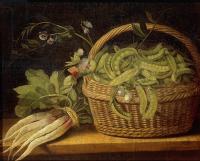Calendar
seminar: Prof. Rebecca Earle (Warwick) What did it mean to call a food 'nutritious' in the 18th century?
a joint seminar with the Global History & Culture Centre.
Refreshments and discussion.
All are welcome.
ABSTRACT
Eighteenth-century European writers frequently described foods as ‘nourishing’. What did they mean? Over a century would pass before scientists elaborated a nutritional paradigm that quantified food’s nutritive qualities. Prior to that, the embodied experience of plebeian eaters remained a central measure of a food’s status as nourishing. Drawing primarily on material from Britain and France, this article charts eighteenth-century efforts to define the nature of nourishment. After connecting eighteenth-century discussions of nourishing food to debates about political and commercial prowess, it explores varied understandings of how the body derived sustenance from its diet, and the ways in which these ideas informed both schemes to promote particular ‘nourishing’ foodstuffs, and also the dietary opinions of the labouring peoples at whom these campaigns were largely aimed. Healthful food, as this article demonstrates, was of central importance to eighteenth-century conceptions of national strength and prosperity, but neither statesmen nor scientists could agree on objective, quantifiable methods for evaluating a food’s potential to nourish. As a result, elite programmes to promote particular foodstuffs as suitable for the labouring population relied not simply on the expert opinions of doctors and scientists, but also on the bodies and purported views of the very people at whom these campaigns were directed. With the rise of nutritional science in the late nineteenth century, the opinions of ordinary eaters lost their epistemic authority; during the eighteenth century the embodied experience of working people remained stubbornly central to learned discussions of the nature of nourishment.

